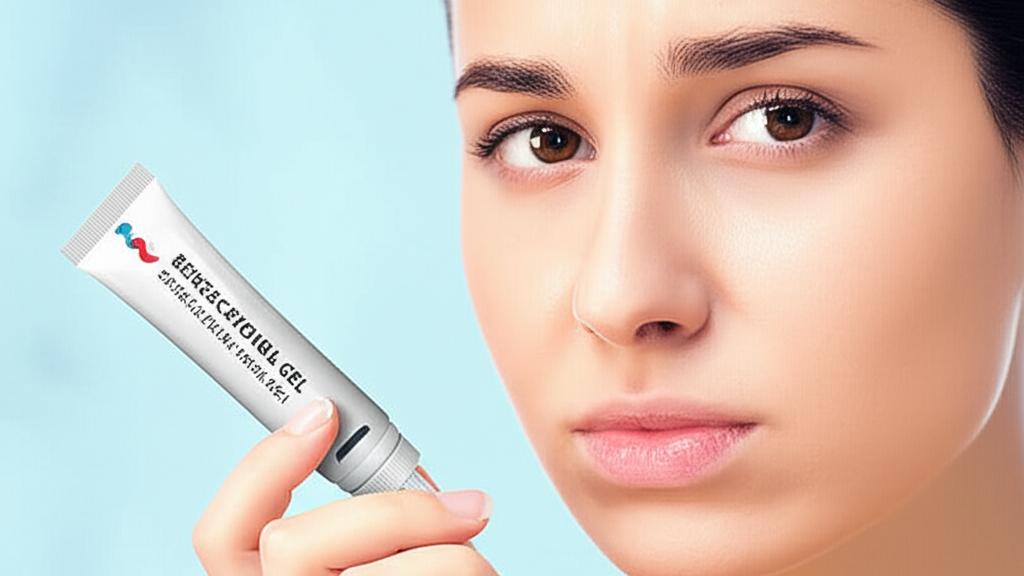It’s a feeling many of us know all too well. A sudden, sharp pain from a tooth, a nagging canker sore, or irritation from new dentures that makes it hard to think about anything else. In those moments, you just want relief, and you want it fast. It’s no wonder so many people reach for over-the-counter numbing products. One of the most common active ingredients in these gels, pastes, and solutions is Benzocaine.
It’s a local anesthetic, which is just a medical way of saying it numbs the small area where you apply it. It can be a real lifesaver for temporary relief from minor mouth and throat irritations. But just because it’s easy to buy doesn’t mean it’s without risks. So, let’s talk about it, just like we would in my office.
When to Be Cautious with Benzocaine
Before you use any new medication, even a topical one, it’s a good idea to pause and think. We need to be especially careful if you have certain underlying health conditions. It’s a good habit to check in with your doctor or pharmacist if any of these apply to you.
| Condition or Situation | Why It Matters |
|---|---|
| Heart, Lung, or Breathing Disease (like asthma) | These conditions can make you more vulnerable to a rare but serious side effect that affects oxygen in your blood. |
| G6PD Deficiency | This is a genetic condition that can increase the risk of blood-related side effects. |
| Tobacco Use | Smoking can sometimes affect how your body handles medications and may increase risks. |
| Allergies | If you’ve ever had a reaction to other “caine” anesthetics or to PABA (found in some sunscreens), you should avoid it. |
| Pregnancy or Breastfeeding | It’s always best to chat with your doctor before using any medication during this time. Safety first! |
How to Use It Safely
Using this medication is straightforward, but doing it right is key.
- Wash your hands before and after you apply it.
- Apply a small amount directly to the painful area in your mouth or on your gums.
- Follow the package directions carefully. Don’t use it more often than recommended. This isn’t a long-term solution. If the pain isn’t getting better after a few days, it’s time to see a doctor or dentist.
A Crucial Warning for Parents: Please, do NOT use Benzocaine products for teething pain or any mouth pain in children younger than 2 years old. It can cause a rare but very serious condition called methemoglobinemia, where the amount of oxygen carried in the blood drops to dangerous levels. For kids over 2, always talk to your pediatrician first.
Once you’ve applied it, the area will feel numb. Be careful! It’s easy to bite your tongue or cheek without realizing it. It’s best to avoid chewing gum or eating until the numbness completely wears off.
What about drug interactions?
For most people, interactions aren’t a big issue with a topical gel. However, it can potentially interact with a class of antibiotics called sulfonamides (like Bactrim). Always give us a full list of everything you’re taking—prescriptions, supplements, everything. It helps us keep you safe.
Side Effects to Watch For
Most people don’t have any trouble, but it’s important to know what to look for. I’ve broken them down into “call us now” and “let us know if it persists.”
| Potential Side Effects of Benzocaine | |
|---|---|
| Get Medical Help Immediately if You Notice: | |
| Signs of an Allergic Reaction | Skin rash, hives, intense itching, or swelling of your face, lips, tongue, or throat. |
| Signs of Methemoglobinemia | Skin or lips turning a bluish or grayish color, severe headache, shortness of breath, unusual weakness, fast heartbeat, or confusion. This is an emergency. |
| Heart Rhythm Changes | A racing or irregular heartbeat, dizziness, feeling like you might faint, or chest pain. |
| Report to Your Doctor if These Continue or Are Bothersome: | |
| Local Irritation | Some minor redness, itching, or swelling right where you applied the product. |
Take-Home Message
- Benzocaine is a topical anesthetic for temporary relief of minor mouth pain in adults.
- Crucially, do NOT use it for teething or any pain in children under 2 years old due to the risk of methemoglobinemia.
- If you have heart, lung, or certain blood conditions, talk to your doctor before using it.
- Watch for serious side effects like blueish skin, severe headache, or shortness of breath, and seek emergency care if they occur.
- Don’t use it for more than a few days. If the pain persists, it’s a sign that you need to see a dentist or doctor to find the root cause.
Mouth pain is miserable, and finding quick relief is understandable. Just remember to use these products wisely and safely. You’re not alone in figuring this out.
Benzocaine, mouth pain, oral anesthetic, toothache relief, methemoglobinemia, canker sore relief, Orajel side effects


